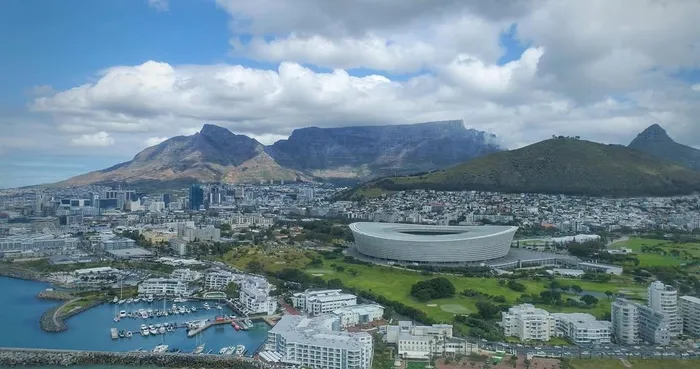
South Africa's tourism sector must combat negative perceptions to thrive amid violence narratives
Image: Instagram.
Tourism experts have warned that South Africa’s hospitality and business sectors must move away from a mindset of underselling their brand to the world, especially in light of recent comments at the White House claiming the country is a “violent nation.”
During the meeting, delegation members took turns explaining the country’s ongoing violence, a move that some believed complicated Tourism Minister Patricia de Lille's efforts to attract more visitors and boost the nation’s economy.
The meeting followed controversial allegations by then-President Donald Trump, who linked South Africa to “genocide” and made a decision to offer refugee status to minority Afrikaners, claiming they faced persecution.
Some experts and organisations, including the MK party and the EFF, have said these statements have contributed to the negative perception of South Africa internationally.
In response to questions from IOL about the potential impact of these comments on tourism, the Department of Tourism declined to comment directly.
De Lille’s spokesperson, Tasneem Carrim, stated that only the department’s marketing unit would respond, but despite numerous attempts by IOL, no response was received.
Professor Christopher Isike of the University of Pretoria pointed out the missed opportunity to clarify key issues.
“There was a chance to state clearly that there’s no evidence linking political land reform or social unrest to violence or genocide,” he said.
Addressing concerns about false narratives affecting South Africa’s global image, Michael Delaney, General Manager of Radisson RED Johannesburg-Rosebank, cautioned against narratives seeking to make South Africa look bad and argued the importance of highlighting the country’s positive attributes.
He also stressed the need to reassure visitors that robust safety measures are in place.
In what appeared to be a response to the images of white people being targeted in South Africa during the Oval meeting, Delaney expressed grave concern.
“he hospitality sector has expressed concern over the increasing use of AI-generated images and out-of-context, outdated photographs that portray South Africa as a land plagued with insurmountable problems.
“These misleading portrayals could damage the country’s tourism industry.
“They often find the country welcoming and beautiful,” he explained.
Having traveled extensively for work, he observed that people overseas are keen to experience South Africa firsthand.
Furthermore, he said that many hotels host guests from the United States, Asia, Europe, and Africa, including airline crews and delegations, ensuring their safety is in the industry’s best interest.
“Travelers can be great ambassadors for South Africa because they move around the world and share their experiences.”
Delaney also encouraged the amplifying messaging around tourist safety in overseas markets.
“All our hotel groups prioritise the safety of visitors and staff. We have comprehensive security measures and provide guests with safety tips during check-in - such as using our complimentary shuttle services, utilising hotel safes, and avoiding wearing jewellery or carrying passports openly.”
According to the Tourism, 2024 report released by Statistics South Africa (Stats SA), South Africa remained a top destination in 2024, with a total of 8,9 million tourists arriving in the country - up 5,1% from the previous year - but still falling short of the 10,2 million tourists recorded before COVID-19 disrupted global travel.
In 2024, around 30,8 million travellers were recorded, a 23,7% drop from the 40,4 million in 2015. Arrivals reached 16,1 million, departures totalled 14,3 million, and transits stood at 469 000—significantly lower than the 20,5 million arrivals, 19,1 million departures, and 824 000 transits recorded in 2015.
IOL Politics
Related Topics: